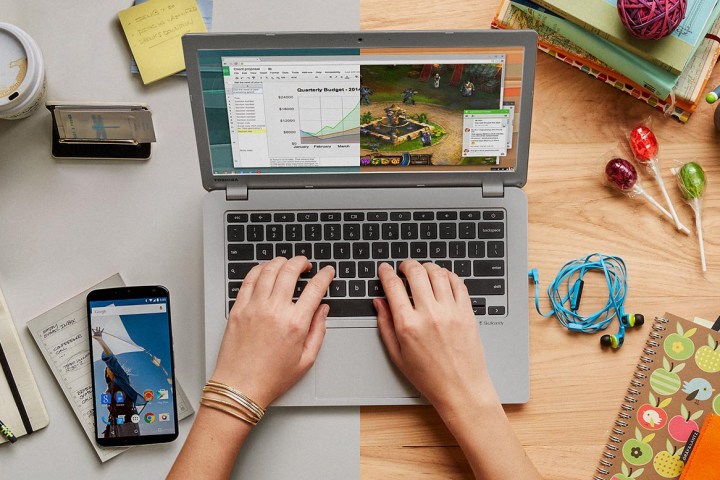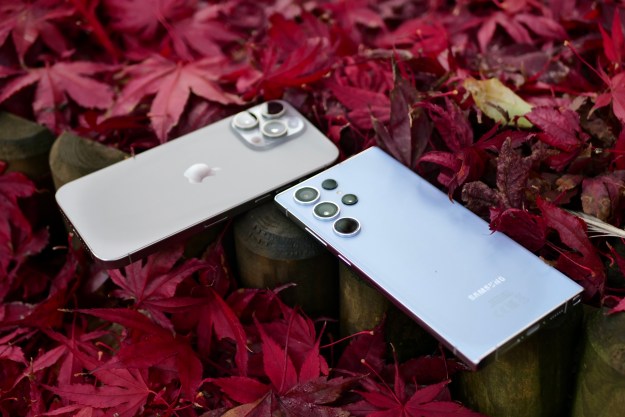
Update: 10/30/2015 8:23AM: Hiroshi Lockheimer, the Senior Vice President of Android, Chromecast and Chrome OS, has released a short statement on Twitter.
There’s a ton of momentum for Chromebooks and we are very committed to Chrome OS. I just bought two for my kids for schoolwork!
— Hiroshi Lockheimer (@lockheimer) October 30, 2015
While being “committed” to the platform sounds good, it does notably skirt a denial of The Wall Street Journal’s. Google might be committed — until 2017, when it’s not. or being committed could mean, as the report suggests, Google is committed to the idea of low-cost notebooks — but they’ll soon be running a version of Android, rather than Chrome OS.
Original Text: ChromeOS has been a success in many respects. While not universally loved, and still limited compared to Windows or OS X, the simple operating system has a small, loyal following, and laptops based off it often appear on Amazon’s top-selling list.
Yet that’s not enough to earn it a stay of execution, as The Wall Street Journal reports that insiders say Chrome OS will soon be given the axe. It apparently will be folded into Android next year, and Chromebooks will no longer be sold as of 2017.
Google’s decision to get rid of its desktop operating system is apparently linked to a planned revision of Android that will help it span multiple categories of devices, including 2-in-1s. This interest isn’t a huge surprise given the recent announcement of the Pixel C, an
Still, the decision to get rid of Chrome OS now feels a bit arbitrary. Critics have argued its redundancy since its invention, yet Google pushed forward, debuting new versions and encouraging manufacturers to build new models. PC makers have been eager to do so, as the operating system’s low price tag of “free” helps them hit an attractive price point without sacrificing hardware.
The death of Chrome OS doesn’t mean Google is removing itself from the notebook game. According to the Journal, the company will continue to support notebooks in some form, but they’ll use the upcoming, revised Android operating system. These systems will also drop the “Chromebook” branding, but their new name is not yet known.
Cutting Chrome OS likely makes sense for the company’s bottom line, since it wasn’t making any money off the operating system. The development of concept was a way for the company to hedge its bets in case thin-client PCs took off — it was developed during the time netbooks were popular, after all. But Chromebooks have developed a loyal following over the years, and fans are sure to be unhappy about this news.
But perhaps this won’t be the end. Chrome OS has an open-source development branch called Chromium OS, which is likely to continue to see participation. True fans will probably be able to use the OS for years to come — they’ll just have to install it themselves.
Editors' Recommendations
- 5 web browsers you should use instead of Google Chrome or Edge
- Android 15 release date: When will my phone get the update?
- Google just released the first Android 15 beta. Here’s what’s new
- This Google Pixel 8a leak just spoiled everything about the phone
- Google’s Incognito Mode is in trouble

